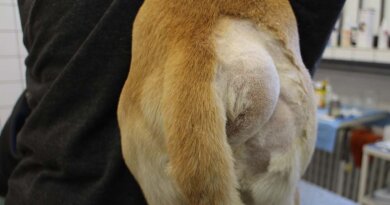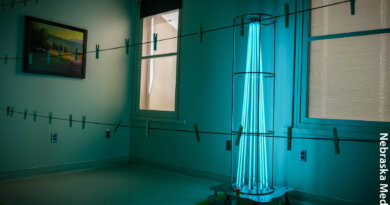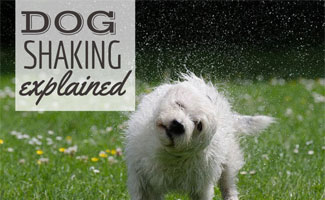Is Narcolepsy an Autoimmune Disorder?
Narcolepsy is a neurological disorder that affects your sleep-wake cycle. We still don’t know what causes the condition. But most people with type 1 narcolepsy — the kind with sudden muscle weakness, or cataplexy — have little to no orexin. Also called hypocretin, that’s a brain chemical that controls wakefulness.
Now there’s growing evidence an autoimmune process might trigger this loss.
Birgitte Kornum, PhD, an associate professor in the department of neuroscience at the University of Copenhagen, studies sleep and the immune system. She hasn’t found a specific narcolepsy-related antibody, but “the autoimmune hypothesis is the best explanation that captures all the findings we have so far.”
Most research is done on type 1 because it’s far more common and there’s hypocretin loss.
“There’s been a lot of time and money spent to identify an autoimmune antibody,” says Vahid Mohsenin, MD, a sleep medicine specialist with Yale Medicine and professor of medicine at Yale School of Medicine in Connecticut. “But nothing has panned out to be specific enough to explain any type of narcolepsy — whether it’s type 1, type 2, or something in between.”
Here’s what we do know.
The Autoimmune Hypothesis
Your immune system protects you from germs, including viruses and bacteria. But sometimes it thinks your own cells might hurt you or make you sick. So, it attacks them and other healthy tissue. That’s called autoimmunity.
Certain types of immune cells called T cells are involved in this process. CD4+ and CD8+ T cells are building blocks for autoimmunity, says Insoo Kang, MD, a rheumatologist with Yale Medicine in Connecticut. These cells can do damage alone or by helping other immune cells.
Studies, including Kornum’s research, have found that people with narcolepsy have CD4+ and CD8+ T cells that are autoreactive toward hypocretin neurons. That means these T cells can detect and target cells that make hypocretin.
This doesn’t prove that these T cells are the ones destroying hypocretin. “But it all points in the same direction: There’s something with the immune system that’s specifically targeting these neurons, and they’re lost,” Kornum says.
Other autoimmune conditions, such as type 1 diabetes, also have autoreactive CD8+ T cells. Kornum says researchers are comparing the two conditions because of their similarities.
Other Factors at Play
People with narcolepsy type 1 are much more likely to have mutations, or changes, in a group of genes called human leukocyte antigen (HLA). But you can still have narcolepsy with a normal HLA gene. And some people without narcolepsy have a mutated HLA gene. That makes the genetic part of narcolepsy “interesting and confusing,” Mohsenin says.
Like other health conditions, it’s likely your genes and environment affect each other. Mohsenin points to events from the 2009 H1N1 flu epidemic. He says certain countries used a flu vaccine that we didn’t use in the United States. Those areas saw a spike in narcolepsy cases compared to prior years.
Some experts think that a protein from that flu shot, or the infection itself, reacted with hypocretin-producing cells. And studies show that people who have the HLA gene for narcolepsy have a higher antibody response to that protein. “That’s another indirect piece of evidence indicating immunity in narcolepsy,” Mohsenin says.
Kornum agrees that narcolepsy is probably a mix of “unfortunate” factors. She says that includes your genes, T cells, and outside triggers — such as a viral infection like the flu.
“The thinking, right now, is that to develop the disease, you need a combination of everything. That’s why you can see elements in healthy people, but they didn’t have everything at the same time.”
Where Is Research Headed?
There’s more to learn about which gene changes are most important for raising your odds of narcolepsy. And Kornum says there’s “quite a lot of effort going into understanding the T cell picture better.” One way to do that, she says, could be through better animal and mouse models that copy the human autoimmune process.
Researchers have also tried to figure out if drugs that target the immune system — immunomodulators — can treat narcolepsy. But Mohsenin says those experiments haven’t worked yet. Part of the issue is that once you lose hypocretin, it’s gone. Or at least it appears that way. And there aren’t any drugs that can replace it.
Future Treatment and Diagnosis
The autoimmune link doesn’t change the way doctors currently manage narcolepsy. But it might down the road.
“There’s both the hope that we can treat (narcolepsy) by targeting the immune process, and there’s also the hope that from all this research could come some better biomarkers,” Kornum says.
A biomarker is something specific to a disease that can be measured. If experts find one for narcolepsy “you could diagnose by a blood sample instead of all of these expensive, time-consuming procedures that we have today,” Kornum says.
But right now, doctors still treat narcolepsy by easing symptoms. That’s because “we really don’t have any idea about the mechanism of narcolepsy — what is causing it and what is really the crux of the issue,” Mohsenin says.



